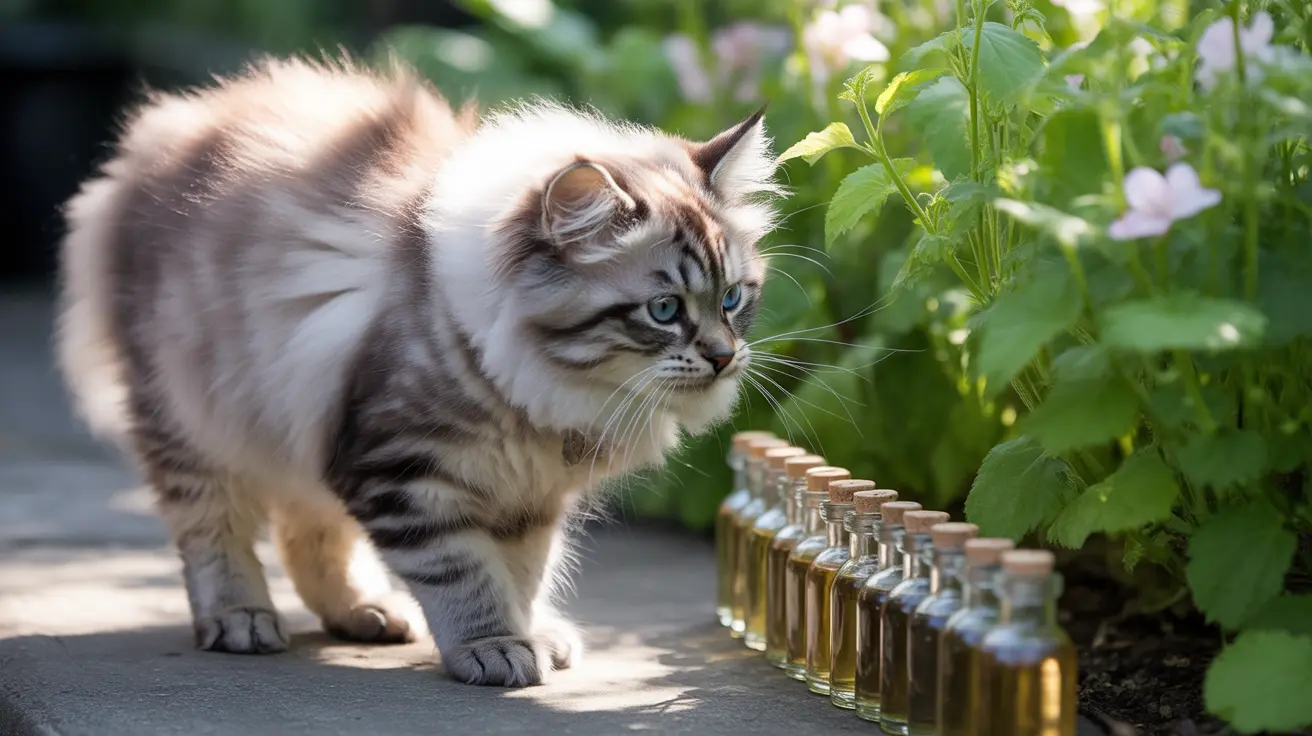Introduction
Many pet owners and gardeners seek humane ways to keep cats out of specific areas, and vinegar has emerged as a popular natural deterrent. Thanks to cats' highly sensitive noses - boasting up to 200 million olfactory receptors compared to humans' mere 50 million - vinegar's strong acidic scent can be an effective tool for managing feline behavior. But does vinegar really keep cats away, and how can you use it safely and effectively?
In this comprehensive guide, we'll explore the science behind vinegar as a cat deterrent, share proper application methods, and discuss important safety considerations to help you make informed decisions about using this common household item to protect your spaces.
How Vinegar Works as a Cat Repellent
Vinegar's effectiveness as a cat deterrent stems from its primary component: acetic acid. This creates a potent odor that most cats find overwhelming and unpleasant. The strong smell triggers their natural aversion to potentially harmful substances, making them likely to avoid areas where vinegar has been applied.
Both white vinegar and apple cider vinegar can serve as deterrents, though white vinegar typically proves more effective due to its stronger concentration of acetic acid. The key lies in proper application and dilution to maintain effectiveness while ensuring safety.
Safe Application Methods and Best Practices
When using vinegar as a cat deterrent, proper dilution is crucial. Mix equal parts water and vinegar to create a safe and effective spray solution. This 1:1 ratio provides sufficient deterrent power while minimizing risks to surfaces and plants.
Recommended Application Techniques:
- Spray around garden borders and furniture legs
- Apply to baseboards and doorframes
- Create a barrier around outdoor planters
- Use on non-porous outdoor surfaces
Always test the solution on a small, inconspicuous area first to ensure it won't damage surfaces. Avoid spraying directly on plants, as vinegar's acidity can harm vegetation.
Enhanced Deterrent Solutions
To boost vinegar's effectiveness, consider combining it with other natural cat deterrents. Popular additions include:
- Lemon juice or citrus oils
- Rosemary essential oil
- Lavender
- Citronella
- Natural citrus-scented soaps
These combinations can create a more powerful deterrent while remaining safe for both cats and humans when properly diluted.
Important Safety Considerations
While vinegar is generally safe as a deterrent, certain precautions are essential:
- Never spray vinegar directly on cats
- Keep vinegar solutions away from pet food and water bowls
- Avoid application near litter boxes
- Ensure proper ventilation in indoor spaces
- Don't use on delicate surfaces like natural stone or unsealed wood
Maintenance and Reapplication
For continued effectiveness, regular reapplication is necessary, especially in outdoor areas exposed to rain or irrigation. Indoor applications typically last longer but may need refreshing every few days to maintain their deterrent effect.
Alternative Deterrent Methods
If vinegar alone isn't providing sufficient results, consider combining it with other deterrent methods:
- Physical barriers
- Motion-activated sprinklers
- Commercial cat repellents
- Protective ground covers like river rocks or chicken wire
- Cat-deterrent plants like Coleus canina or rue
Frequently Asked Questions
How effective is vinegar at keeping cats away from specific areas in and around the home?
Vinegar can be highly effective as a cat deterrent, particularly when properly diluted and regularly reapplied. Success rates vary by individual cat, but most cats will avoid areas treated with vinegar due to their sensitive sense of smell.
What is the safest way to use vinegar as a cat deterrent without harming my cat or damaging surfaces?
Mix vinegar with water in a 1:1 ratio, test on surfaces before full application, and never spray directly on cats or plants. Always ensure proper ventilation and keep the solution away from pet food, water, and litter areas.
Can I make a homemade cat repellent spray using vinegar, and what ingredients work best alongside it?
Yes, combine equal parts water and white vinegar, optionally adding pet-safe essential oils like lemon, rosemary, or lavender. Citrus-scented natural soaps can also enhance the deterrent effect.
Why do cats dislike the smell of vinegar, and how does it affect their behavior?
Cats' heightened sense of smell makes vinegar's acidic odor particularly offensive to them. The strong scent triggers their natural avoidance response to potentially harmful substances, causing them to stay away from treated areas.
Are there any risks or side effects of using vinegar near cats, especially if applied indoors?
When properly diluted and applied, vinegar poses minimal risks to cats. However, direct exposure to concentrated vinegar can irritate eyes, nose, and respiratory systems. Ensure good ventilation indoors and avoid direct contact with cats.
Conclusion
Vinegar can be an effective, natural solution for keeping cats away from specific areas when used properly. Success depends on correct application, regular maintenance, and understanding that individual cats may respond differently. While vinegar isn't a guaranteed solution for every situation, it offers a safe, affordable starting point for humane cat deterrence when combined with other preventive measures.






